–>
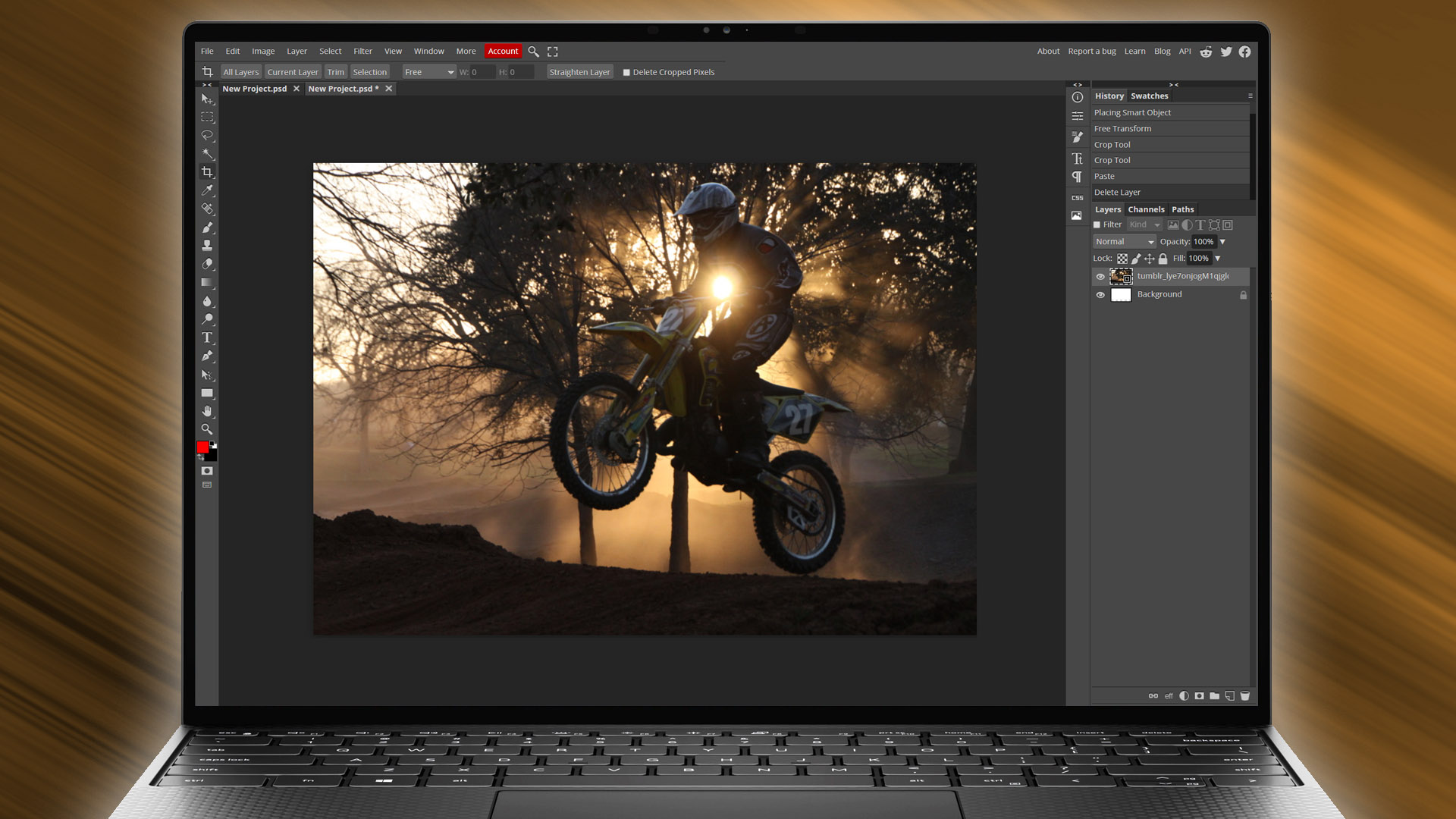
Dell
Photoshop is an absolute staple of modern graphic design, an industry standard for over 30 years. It’s also insanely expensive: no longer available as a stand-alone program, you’ll pay Adobe a minimum of $120 every year to use it as a part of a Creative Cloud subscription. That’s a lot of dough to drop, especially if you’re only using it for the occasional photo edit.
There are low-cost alternatives to Photoshop, like Adobe’s own Photoshop Elements or Affinity Photo. But if you’re looking to get the job done without spending a dime, you have a few surprising options. For even more no-cost alternatives to popular software, be sure to check out our roundup of the best free software for your PC.
A free web-based Photoshop clone: Photopea
Photopea is a web-based editor, available in any browser. The big appeal here is that, in addition to being free, its interface is based directly on the tools and menus of Photoshop. Veterans of Adobe software who aren’t looking to learn an entirely new system are served especially well here.
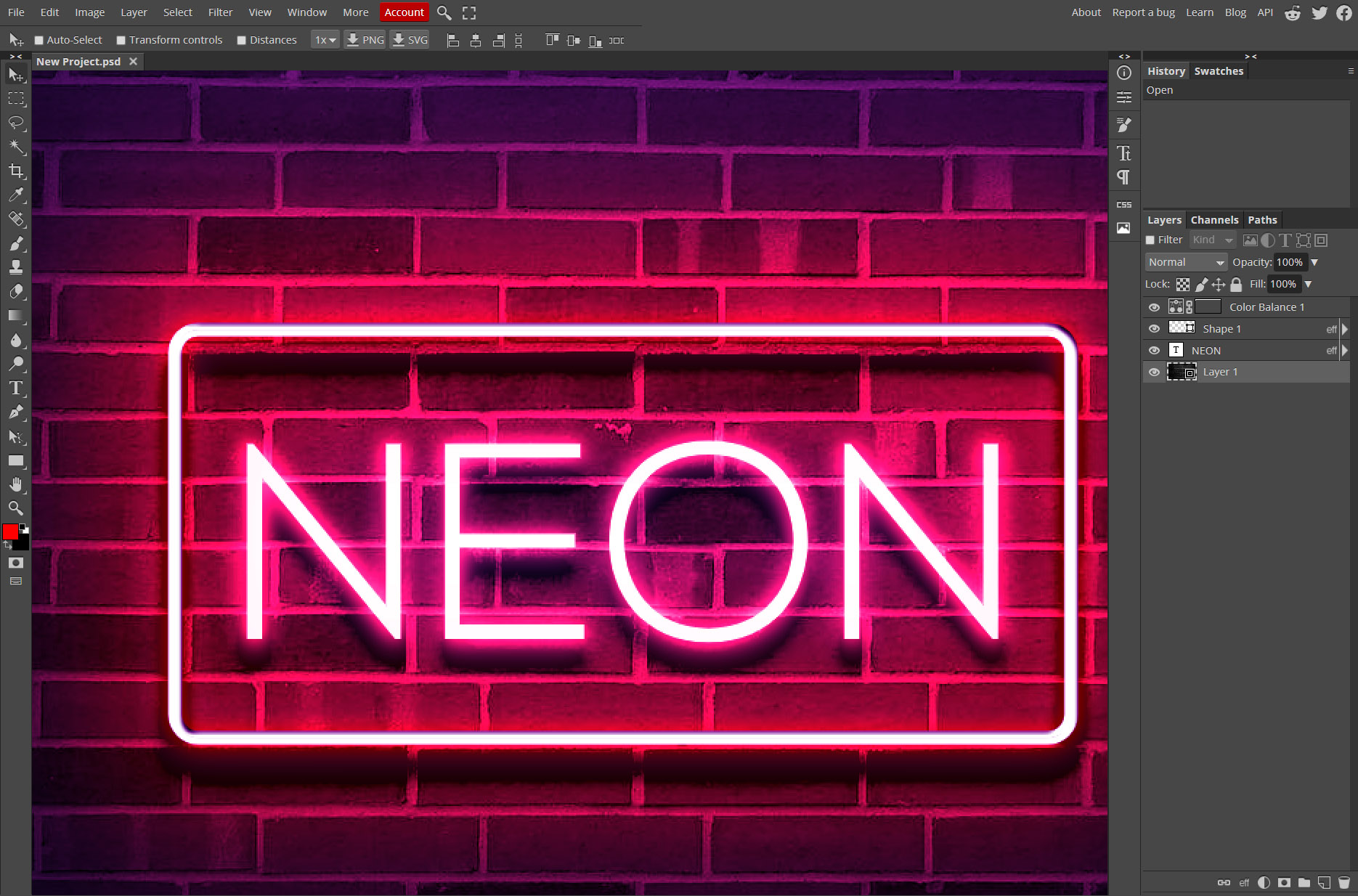
Photopea
Being web-based, Photopea can’t take advantage of powerful hardware, and a few keyboard shortcuts need to be re-learned for long-time Photoshop users. But all things considered, it’s a remarkably effective alternative. Free users get access to all of the program’s tools, but a $3 per month plan unlocks a longer history and banishes ads.
A complex but powerful alternative: GIMP
A long-time favorite of Linux users, the GIMP image editor is now available on all platforms. While its interface isn’t exactly friendly to beginners — especially if you’re used to other programs — it’s at least as powerful as Photoshop for standard image editing tasks.
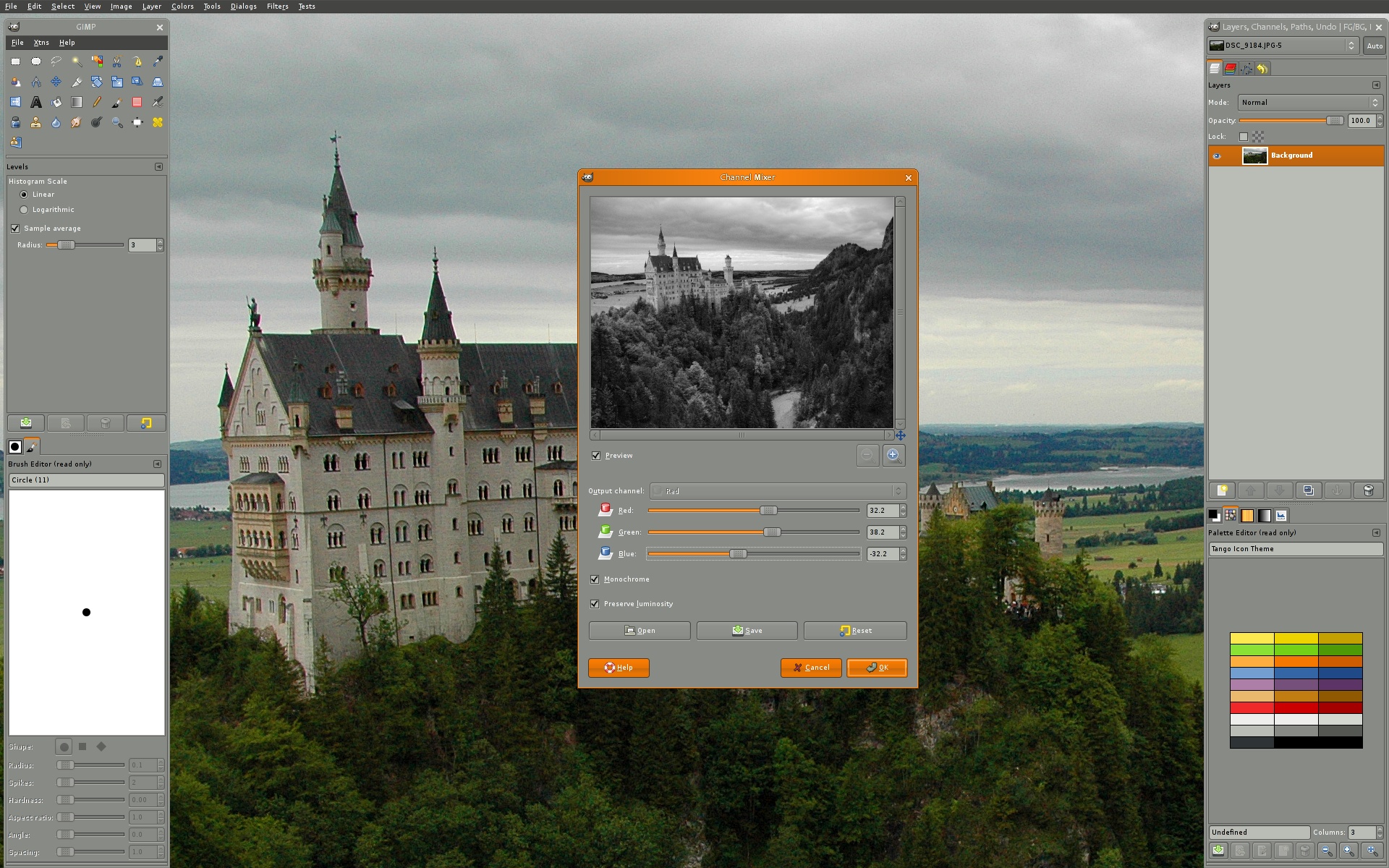
GIMP
GIMP is short for GNU Image Manipulation Program. GNU is short for “GNU is not Unix.” Unix is — you know what, we’re getting distracted. Just know that GIMP is at least as flexible as Photoshop in terms of capability (albeit without some of the whiz-bang additions in Creative Cloud), so long as you’re willing to dive into a wiki or two.
For quick and easy edits: Paint.NET
This Windows-first editing program has been in continual development for almost two decades. As the name implies, it’s a more powerful alternative to the built-in Paint tool that’s still a staple of the operating system. But don’t let the name fool you: Paint.NET is much closer to Photoshop than Paint in terms of capability.
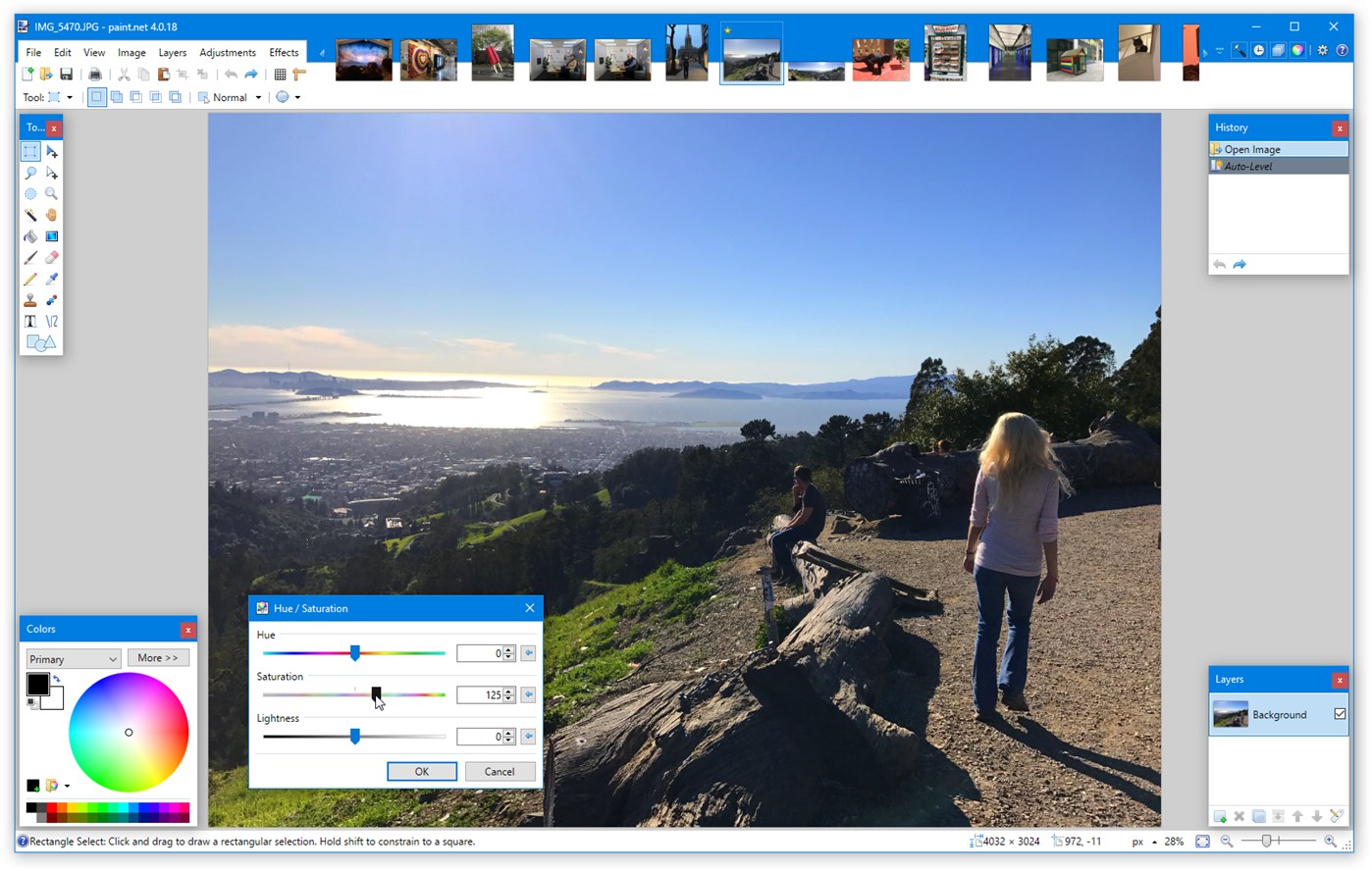
dotPDN LLC
While it lacks some of the more advanced graphic design tools in Adobe’s belt, Paint.NET can handle more or less any basic editing task, with full support for layers, action history, and even complex plugins. Just be prepared for an adjustment period for its interface, which favors floating menus over docked tools.
For the digital photographer: Photoscape X
Photoscape X is definitely more of a photo editor than an image editor, with a focus on easy-to-use tools for rapidly improving photos and adding social media-approved extras. It’s particularly handy if what you’re editing is portraits and other people-focused photography.
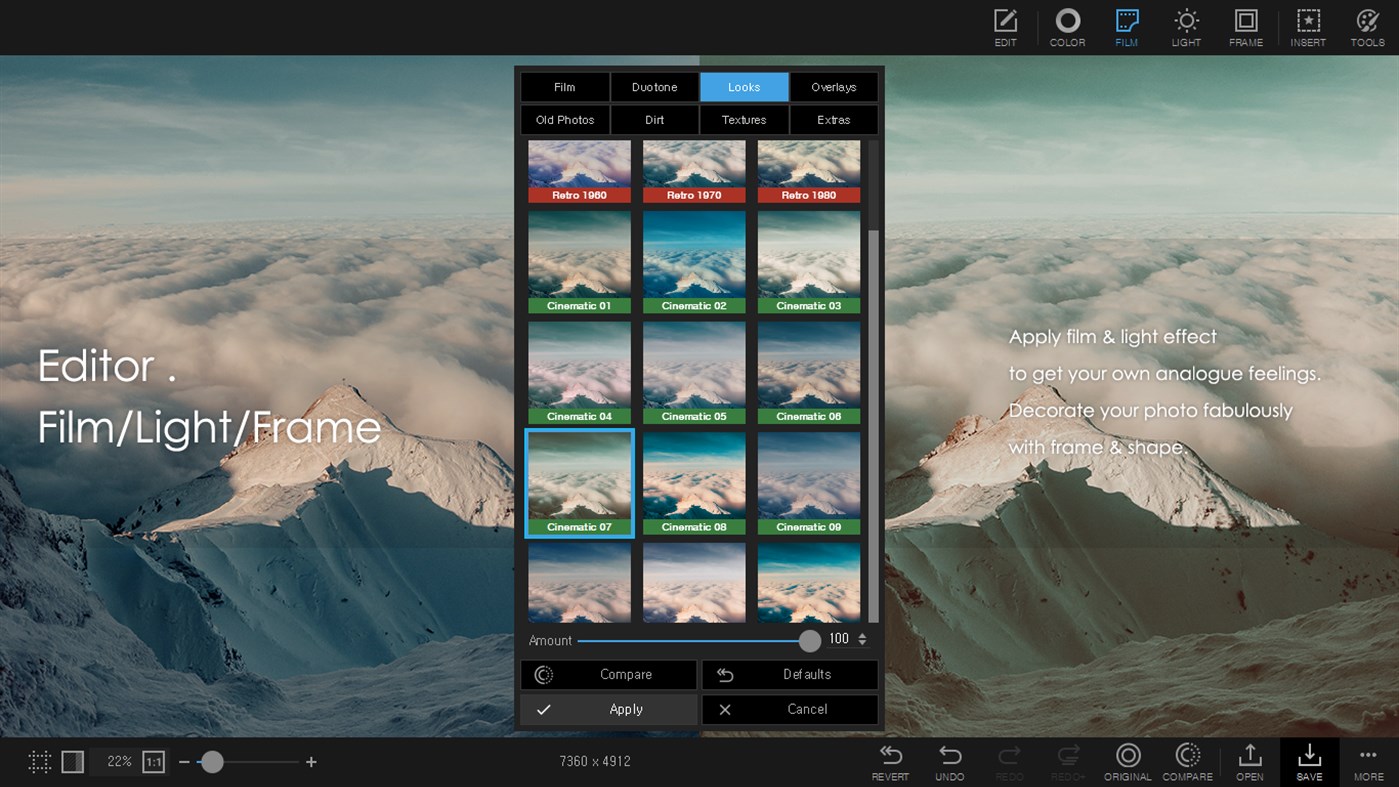
Mooii Tech
Even so, it includes a few surprising tools, like a batch editor and a GIF creator. Photoscape X is a great choice for someone who wants something like Photoshop, but doesn’t have years of experience to un-learn. The standard version is free, while the pro version with better text handling and more powerful filters is a reasonable $40.
For the digital artist: Krita
In contrast to Photoscape, Krita is for users who need a tool for direct art creation: digital drawing, painting, inking, et cetera. Its interface and tools are tailored to artists first and foremost, and its raster-based image editing capabilities aren’t all that impressive.
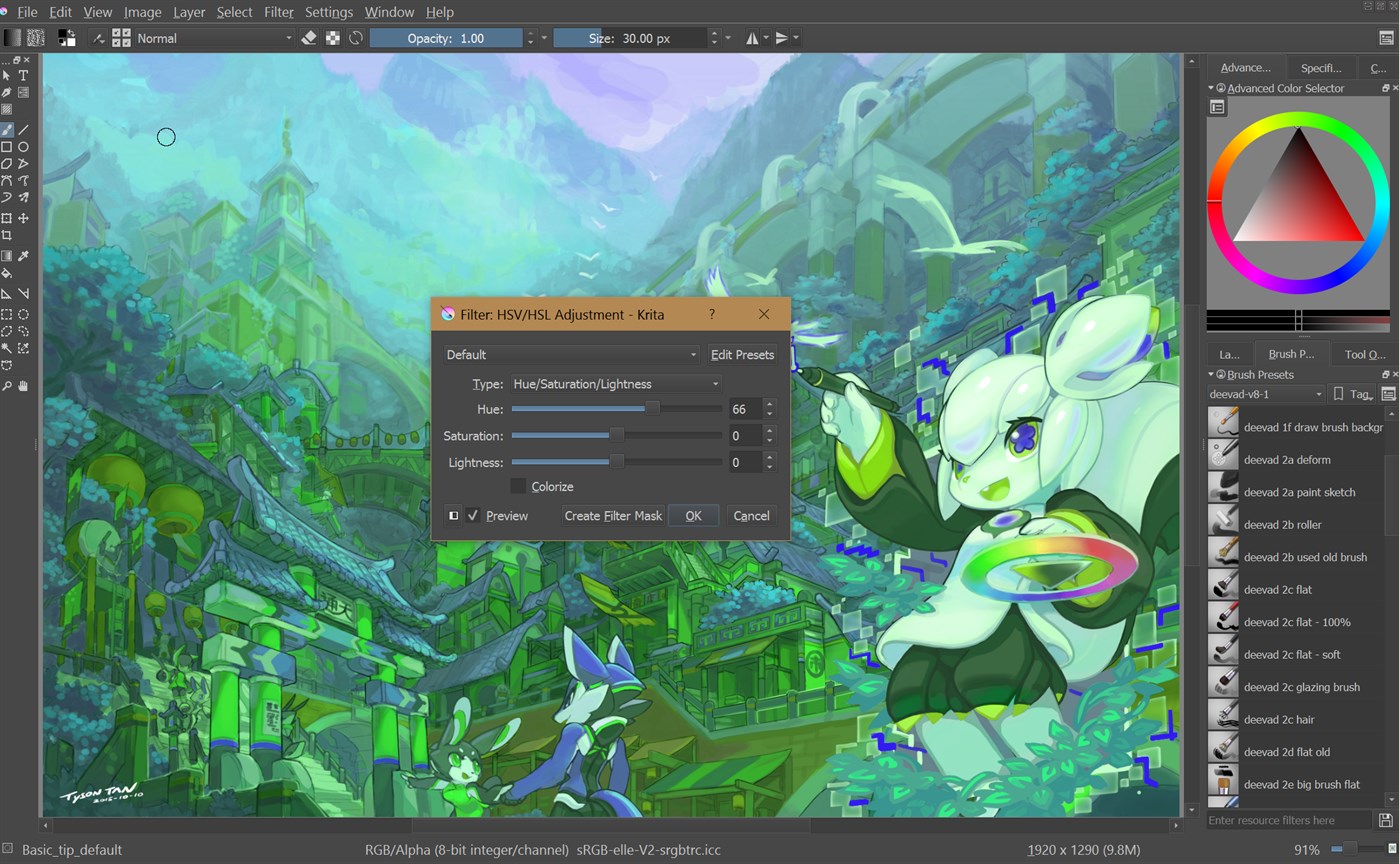
Krita
Krita’s layout should be familiar to Photoshop users, and its wide array of brush settings and vector tools should allow for flexibility for artists who like to mix media. It even has some basic 2D animation tools. The editing program itself is free, with community development supported by add-ons and tutorials available in its online shop.
Note: When you purchase something after clicking links in our articles, we may earn a small commission. Read our affiliate link policy for more details.
Michael is a former graphic designer who’s been building and tweaking desktop computers for longer than he cares to admit. His interests include folk music, football, science fiction, and salsa verde, in no particular order.
Coupon Codes

You must be logged in to post a comment.